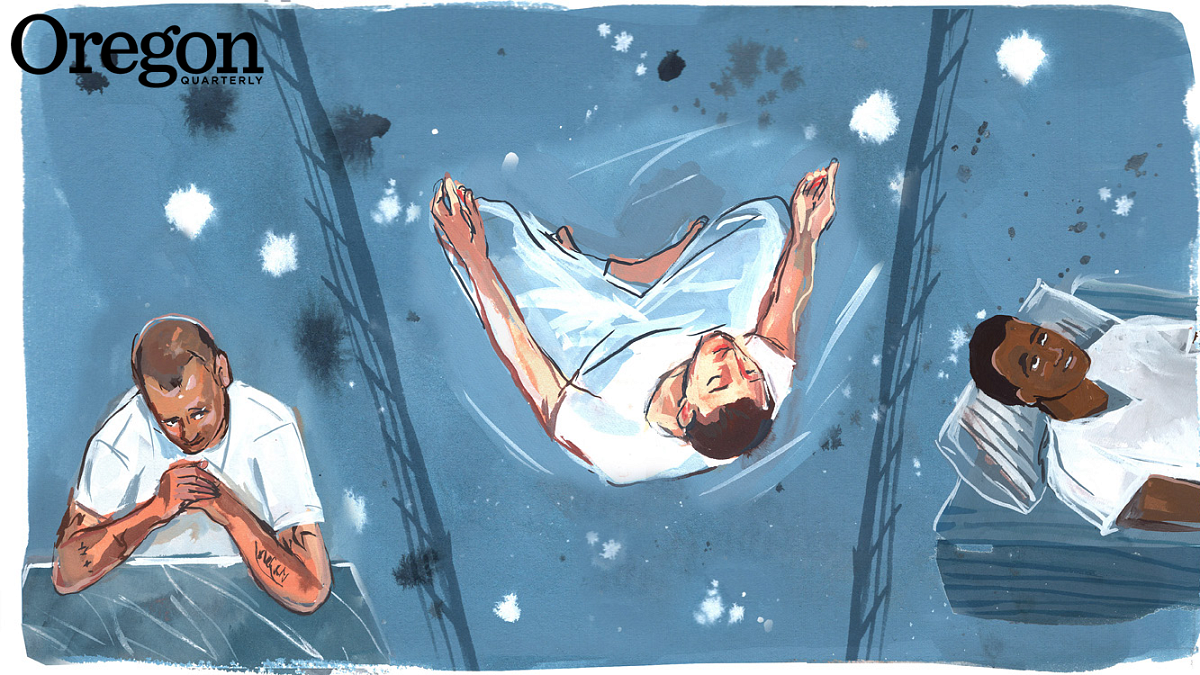When I received his first letter in 2009, Roy Tester was 10 years into a life sentence at “Tucker Max,” the maximum security prison in Tucker, Arkansas. He was in prison for a terrible crime: killing his own parents, after years of their intense abuse. A convert to Buddhism who had discovered meditation during his incarceration, Roy was looking for guidance. That’s how he found me.
I had been a practicing Buddhist for 35 years, with seven as a lay minister at the Eugene Buddhist Priory, but nothing prepared me for Roy. Over the next eight years we exchanged hundreds of letters, discussing everything from his horrific childhood and the despair of prison, to his grief and regret over his crime, to his disabling health problems and the peace he discovered through meditation.
We decided to try a radical idea: spread kindness in prison. With my donations, Roy purchased a pair of used tennis shoes, which he cleaned and repaired so an elderly prisoner could resume his daily walks. He also put together gift bags of food and toiletries that he distributed to prisoners in need.
For Roy, the results were remarkable. “The key to less pain and suffering for anyone is to focus on others,” he wrote once. “Dammit, it works, because I use it daily.”
After years of study and practice, I thought I knew a thing or two about mindfulness and meditation. But it wasn’t until I met Roy that I truly understood the power of these teachings to change someone’s life. I realized that Roy’s practice was about more than just learning sutras and meditating. At the heart of his transformation was the practice of “mindful kindness.”
Mindfulness is the awareness that arises when we practice paying attention to the present moment, without judgment. Kindness is the practice of being friendly, generous, and considerate—both to others and to ourselves. In mindful kindness, mindfulness allows us to notice what’s happening around us with clear eyes, while kindness guides how we respond.
Roy’s practice of mindful kindness grew. A victim of childhood sexual abuse by his father, Roy wrote once that he had saved the life of a convicted child molester in a prison attack. On another occasion, Roy was sent to “the hole”—disciplinary isolation—for blocking a guard from killing a cricket, citing a precept that calls on Buddhists to protect animals and attempt to prevent their suffering.
Even as I saw Roy transformed by his practice, I was transformed, as well. I was truly in awe to witness the power of mindful kindness to create change in the most hellish conditions. When I saw what Roy was able to overcome as he dug deeper into his practice of mindful kindness—including chronic pain, abuse in prison, and self-hatred for his crimes—the things I once thought of as “challenges” in my own life paled in comparison.
Roy can no longer hold a pencil to write due to rheumatoid arthritis and is increasingly isolated in his cell. But our partnership continues. We speak by phone about once a month. I am working with 13 prisoners who were introduced to Buddhism through Roy. They, in turn, work through these same mindful kindness practices with other prisoners.
And Roy continues to inspire me. In his letters, he described a “special place of stillness” he experienced through meditation. It made reality easier to deal with. “Because of that, my life in prison stopped being miserable,” he wrote. “It didn’t matter any longer that I’d never be physically free again.”
—By Doug Carnine, MA ’71 (special education), professor emeritus of education
Illustration by Jenny Kroik, MFA ’10 (painting)


